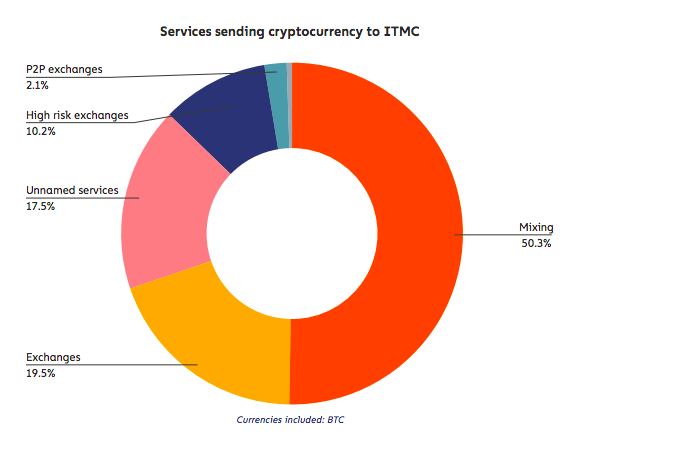Bitcoin
Bitcoin: How terror organizations are using sophisticated tech to solicit funds

Bitcoin as a tool that can provide relief for people under authoritarian regimes is a common idea propagated. However, there is also a darker side to this narrative. Given its decentralized nature, the cryptocurrency is oftentimes highlighted as a tool for funding terrorist activities. This aspect of cryptocurrency was recently analyzed in a report by Chainalysis, with the firm stating that “what’s especially worrying are the advancements in technical sophistication that have enabled successful terrorism financing campaign.”
The report shed light into the first terrorist organization – Ibn Taymiyya Media Center – that started a campaign via cryptocurrencies, with the campaign dubbed as “Equip us” in Arabic, and urging Muslims across the globe to donate on the grounds of “religious obligation.” From June 2016 to June 2018, the campaign was promoted on various different social media platforms such as Twitter, Facebook, and YouTube, where one Bitcoin address would be posted in order to accept donations. The report read,
“The median donation size was $164. The single largest donation was just under $2500, and just two other donations topped $1,000. 14% of donations were between $500 and $1,000, and nearly all of the remainder were between $100 and $500, with most of those falling between $100 and $250.”

Source: Chainalysis
Subsequently, the report went on to shed light on another terrorist organization that started accepting Bitcoin in donations, Izz ad-Din al-Qassam Brigades [AQB]. This organization, unlike its predecessor, employed different types of wallets to accept funds, post which, the organization opted for a system that would generate a new address for each donor. The report remarked that this was one of the “most sophisticated cryptocurrency-based terrorism financing campaigns ever seen.”
Kimberly Grauer, Chainalysis head of research, recently elucidated on the topic in an interview for Unchained Podcast. She said,
“Looking at the campaign in 2018 versus 2019, the campaign was much more successful in raising more funds in a shorter period of time and they used more advanced wallet software and so we’ve just seen this narrative continue in this type of crime as well where criminals are increasing their sophistication and their use of cryptocurrencies “
Chainalysis divided the entire evolution of the terrorist organization into three, with the first part being the acceptance of Bitcoin donation with a single address via QR code. This, however, failed as soon as the address was traced to be associated with a U.S based regulated exchange, resulting in funds being frozen and an investigation initiated against the account holder.
“The second sub-campaign began when AQB replaced the exchange address with a new one linked to a private, non-custodial wallet, citing the need for increased anonymity […] third sub-campaign, with a Bitcoin wallet integrated into their website that generated a unique Bitcoin address for each donor to which they could send contributions”
Source: Chainalysis
Source: Chainalysis
On AQB’s activities, Grauer said,
“We have a variety of heuristics that we use to track funds and that can connect addresses to each other […] crucially, is that we know investigators […] who are able to provide us with addresses that we can connect together through these investigations and allow us to go beyond just what we see on the blockchain […]”
Notably, the firm stated that there was a chance that more terrorist organizations will opt into this fundraising strategy this year and the coming years, with the report adding that there would be a “push for further advancements that allow them to take in more funds and enhance their privacy.”
Jonathan Levin, co-founder of Chainalysis said,
“when it comes to different types of terrorist organizations that actually are in desperate needs of funds you will see more experimentation, you will see some more of these campaigns, fortunately, we have experts […] to identify this type of activity really quickly and make sure that yeah these campaigns can be ineffective when it comes to raising funds”

